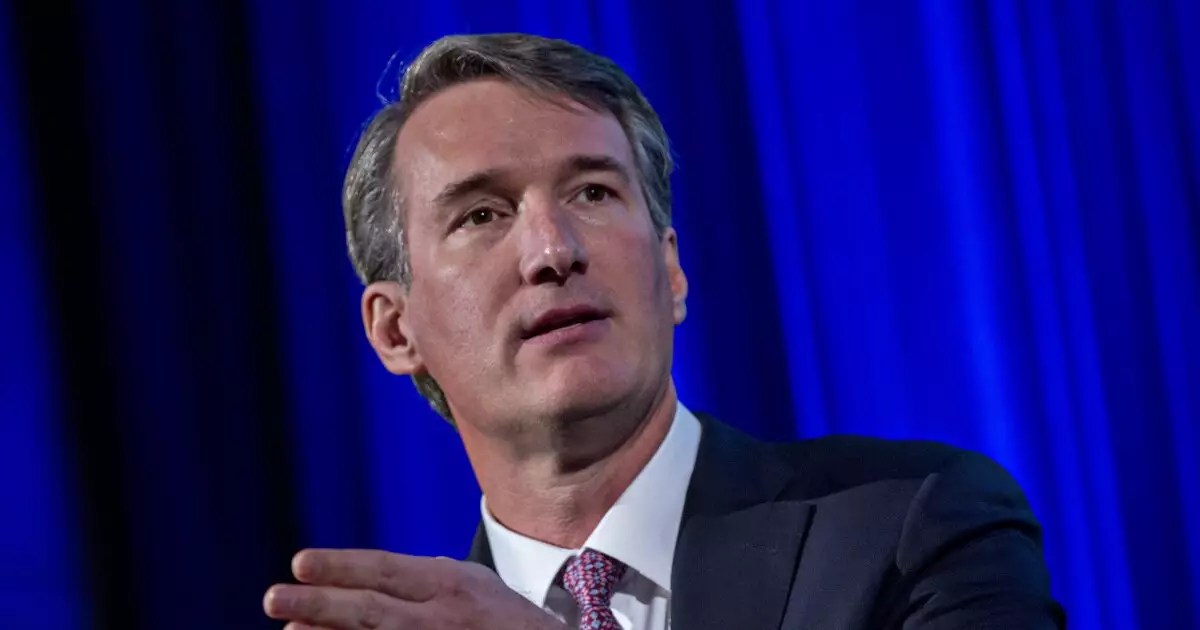The political landscape in Virginia is currently charged as lawmakers grapple with Governor Glenn Youngkin’s budget proposals. In a surprising turn, the legislature, led by Democrats, is advocating a substantial tax rebate plan that reaches a billion dollars, diverging from the governor’s original financial strategies. This situation highlights a growing trend among states experiencing budget surpluses and reflects a broader debate about fiscal responsibility vs. political expediency.
Under the current proposals, individual taxpayers in Virginia would receive a rebate of approximately $200, while couples would benefit from a $400 windfall. Alongside these rebates, there is a push to raise the standard state income tax deduction. The governor has also thrown his weight behind an idea to revamp the way personal property taxes on cars are calculated as a means of distributing the funds. Currently, the car tax is calculated at a rate of 4.15% annually, a sum that funnels revenue into essential state and local services.
Both lawmakers and citizens are keenly interested in how these proposals will shake out, especially given Youngkin’s evident ambition for a higher political profile. This maneuvering raises questions about whether such financial decisions are indeed motivated by desire for public welfare or political maneuvering in anticipation of future aspirations.
Virginia’s General Assembly is currently under the control of Democrats, a point of contention that often puts them at odds with the Republican governor. Youngkin’s historical clashes with the Assembly, such as the failed Alexandria arena complex project, indicate a persistent struggle between his administration and legislative priorities. The disparity between Youngkin’s plans and the Assembly’s push for rebate incentives reflects broader ideological divides, where party lines often dictate not just policy but the welfare of constituents.
The ongoing budgetary discussions are fluid and will require a collaborative effort from both houses to finalize an agreement. Should disagreements persist, the existing budget—likely less favorable to taxpayers—would remain in effect, demonstrating the real-world implications of political conflict.
Despite differing motivations behind these rebate proposals, the idea of returning surplus funds to taxpayers remains overwhelmingly popular among the populace. Figures such as Senate Minority Leader Ryan McDougle emphasize the necessity of ensuring that taxpayers receive their fair share of excess revenue. While concerns linger among policy experts regarding long-term fiscal health and sustainability, the immediate gratification of rebates resonates well with voters.
Additionally, recent financial reports illustrate Virginia’s fiscal strength, further complicating the discourse surrounding these tax measures. The National Association for State Budget Officers reveals that Youngkin’s budget amendments include a substantial allocation to the state’s reserve fund—a safety net that signifies a commitment to maintaining fiscal prudence even while pursuing popular initiatives.
The sound fiscal management of Virginia is underscored by its recent ‘AAA’ bond rating from Fitch Ratings. This rating not only affirms investor confidence in the state’s financial practices but also highlights the commonwealth’s capacity to navigate through fiscal challenges. Such ratings are pivotal, as they directly affect borrowing costs and can either inflate or deflate budgets depending on the perception of economic stability.
Moreover, the anticipated issuance of general obligation bonds, pegged at $272.5 million, showcases Virginia’s strategic approach to balancing taxpayer benefits with long-term liability management. This dynamic intertwines fiscal responsibility with the immediate demand for tax relief, placing policymakers in a complex position of weighing current needs against future obligations.
As Virginia lawmakers march toward a budget deadline, the discussions surrounding a billion-dollar tax rebate unveil tensions between popular demands and the overarching principles of responsible governance. The outcome of these negotiations will not only impact citizens financially but also set a precedent for how political factions navigate fiscal surpluses in the future. The dialogue surrounding these proposals emphasizes a critical question: how can states effectively manage their budgets while fulfilling the expectations of their constituents? The pathway ahead demands a delicate balancing act, one that will test the resolve and priorities of Virginia’s political leaders as they forge ahead in uncertain territory.


Leave a Reply